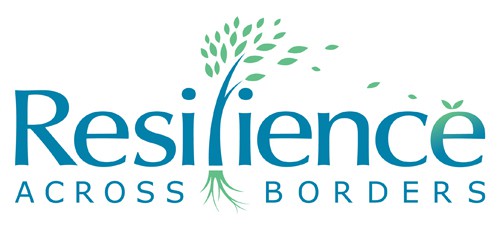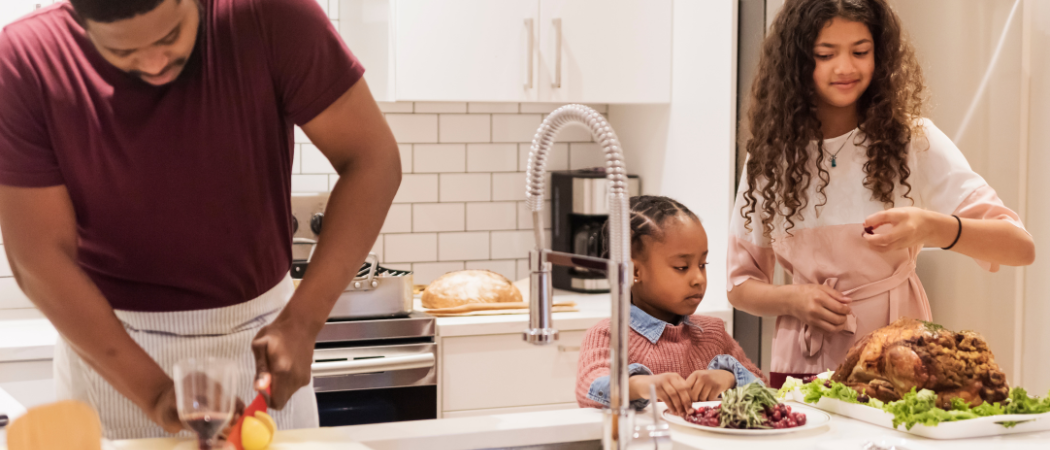How can I ease my child’s holiday gathering anxiety? Q&A with Dr. Maria Zimmitti
It’s been a long time since we’ve had a family get-together. What can I do if my child is feeling anxious or shy about seeing everyone?
Keep in mind that a year and a half in the life of a child feels much longer than it does in the mind of an adult. So, we can expect that they very well may be anxious or shy about seeing people after a long period of time. Having that mindset can help parents understand why this might be challenging for their child from their perspective. First, it’s important to normalize this in a very non-judgmental manner. Then, collaboratively problem solve ways to reduce the anxiety with your child. You may say something along the lines of, “We are getting together with our extended family for the first time in a while, which can feel a bit scary/intimidating/overwhelming. It’s okay to feel nervous. Let’s brainstorm ways of making this feel a bit more comfortable for you. We can review names and ages of family members, look at photos of them so they feel more familiar, video chat with them before the gathering, create a quiet space you can go to if you need a break during the get together, etc. Do you have any other ideas?” Involving the child in this type of conversation will help them to feel more in control and better prepared for an unfamiliar situation.
My child already had social anxiety and the time apart has made it worse. How can I help?
This is a very common trend that we are seeing a lot of within our practice. The pandemic for kids with social anxiety was a relief in many ways. Quarantine removed the anxiety-provoking stimulus, social interaction, which means they were able to be in their comfort zone for an extended period of time. As holidays, school, and other activities are resuming, kids with pre-existing social anxiety are experiencing an amplification of symptoms, which is exactly what we would expect.
Imagine. You are fearful of public speaking and your job requires it. You don’t enjoy it, but with practice you’ve learned some skills for reducing your anxiety. Then, a career change occurs and you no longer have to give those dreaded presentations anymore. Relief and comfort ensue. But then, there is a change in leadership and your new boss suddenly requires daily presentations. Panic ensues. You feel worried, this feels foreign, you lost your skill, and you forget how to cope.
This is exactly what kids with social anxiety are experiencing right now. Helping to see the struggle from their perspective will give you patience, insight, and compassion when working with them to overcome this hardship. Tell them that social skills are sort of like a muscle. With practice, they strengthen over time. However, during the pandemic, that muscle was not used as much and became pretty weak. The good news is that we can restrengthen muscles! With parent support, they can ease into uncomfortable situations to practice strengthening the muscle. Each time they do this, the muscle grows and they can do more and more each time. This type of treatment is called graduated exposure and we strongly recommend that work with a trained therapist to help facilitate this process.
What if my child is worried about covid?
As always, let them know that it’s okay to have some concerns and that you are available to discuss them whenever they arise. Setting aside some time to listen to whatever worries are on your child’s mind will let them know that you are available and they are not alone, which can be a huge relief. When discussing their concerns, be mindful of the amount of reassurance that you are providing to your anxious child. You may find that your child becomes dependent on the reassurance and begins seeking it more and more, which can actually worsen their anxiety when they aren’t able to get the reassurance they are looking for. Rather, remind your child of the safety measures that your family and their school have put in place to take care of them in order to model how they might redirect anxious thoughts.
What can I do if I’m also feeling anxious or nervous?
Some of the anxiety that you are experiencing may be inadvertently passed on to your child, so it’s crucial that you take care of yourself so that you can better take care of your child. Do your best to stay present, avoid too much media intake, and notice your thought process. Are you catastrophizing (thinking of worst case scenarios), getting carried away with “what if” statements, filtering all of your thoughts through a negative lens while ignoring positive or neutral aspects (focusing on number of positive cases rather than low % positive rate)? Take some time to become more aware of what thoughts pass through your mind and see if you can create some space between you and the thoughts. I’m not asking you to change your thoughts in any way. That’s actually very difficult to do. Instead, notice them and return to whatever action you are doing in the moment. The key is to engage in this process without passing judgment (“I’m so bad at this.”). This will help you to not get carried away by the anxious thoughts and model a calm, mindful presence for your child.
Maria Zimmitti, Ph.D. is the Founder and Clinical Director of Georgetown Psychology and Co-Founder of Helix Center in McLean, VA. Dr. Zimmitti is a licensed clinical psychologist with more than 20 years of experience evaluating and treating children, adolescents, and families. She has been featured in numerous media outlets, including CNN, ABC7, The Washington Post, The Huffington Post, and Parenting Magazine to provide her expertise on topics related to child and adolescent mental health and parenting.
Blog Post

